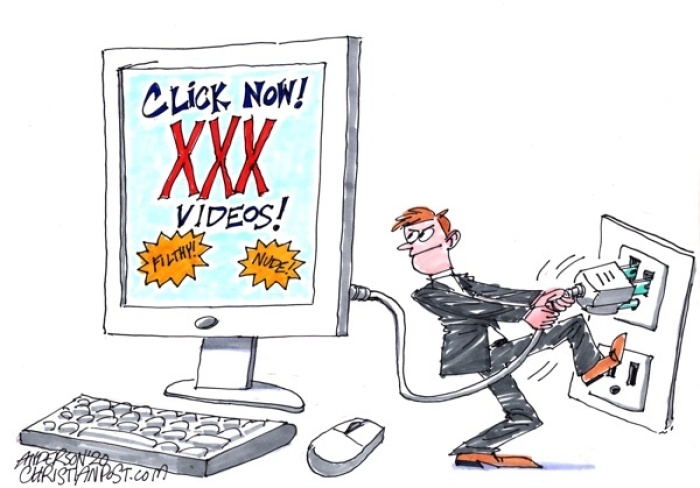John Piper: Pastors must be held to higher standard of sexual purity

When it comes to issues of sexual purity, pastors are not “just one of the guys” and should be held to a higher standard, influential pastor and author John Piper said.
In a recent episode of his “Ask Pastor John” podcast, Piper, founder of desiringGod.org and chancellor of Bethlehem College & Seminary in Minneapolis, Minnesota, weighed in on the question: “Is faultless chastity too high a standard for pastors?”
Piper first acknowledged that it takes “very special grace” to withstand sexual temptation — yet this grace is “is available in Christ to all Christians.”
The standard for church elders and pastors are higher than for ordinary Christian church members, he added, because of the special gifting required for elders and pastors called “teaching” and “governing.”
“[T]here are ethical standards where the pastor is to be above reproach (1 Timothy 3:2), because he’s a very public figure and has the weighty calling of being an example to the flock (1 Peter 5:3) and an example to the world (1 Timothy 3:7),” he explained.
Piper stressed that while many pastors try to give the impression, “with misplaced humility,” that they are “just one of the guys,” they are “emphatically not ‘just one of the guys.’”
“They are the shepherd of the guys. They are the wolf-catchers and wolf-fighters of the guys. They are examples to the guys. They are the protectors and teachers with authority over the guys. Maybe one of our problems is that we’ve just scared pastors witless about being what they ought to be.”
He argued it is “biblically inconceivable that such a shepherd could be living above the standard of Moses, and above the standard of ordinary Christians, and above the reproach of the world, and yet be living in sexual sin.”
“My answer to the question is that it is not too high a standard to require that a pastor live a life free from sexual fornication and adultery and any ongoing use of pornography,” he concluded.
Piper’s thoughts on sexual purity come on the heels of a recent report from Proven Men Ministries revealing that the majority of Christian men and 37% of pastors admit having a struggle with pornography.
Additionally, a Barna report from 2016 found that most pastors (57%) and youth pastors (64%) admit they have struggled with porn, either currently or in the past.
“Overall, 21 percent of youth pastors and 14 percent of pastors admit they currently struggle with using porn,” Barna reported.
Mark Denison, co-founder of the national recovery ministry There’s Still Hope and author of the 2018 bookPorn in the Pew: Confronting the Issue Nobody Wants to Talk About, recently told The Christian Post that about 40% of the men that his ministry works with are pastors.
In cases where pastors have fallen due to porn addiction, Denison urged churches to “lead with redemption.”
“The natural instinct is ‘let’s just protect everything and let’s get this guy out the door as quickly as we can so we can just move on down the street and not be tied to the sin or tied to what has happened,’” Denison said.
“So many times it destroys the individual. I am not saying that a pastor, when he falls, has to stay on staff of a church. But what I am saying is we have to redeem this guy and have to minister to the pastor that falls and provide for him the tools and resources to get well.”
In addition to “responding biblically,” churches should also “react compassionately.” For pastors that have lost their jobs and career because of their porn struggles, Denison said that churches and churchgoers should look to “provide financially” for the pastors and their families.
“Whenever a pastor falls and his salary is taken away from him, you have one or two choices. You are going to get criticized from either side,” he said. “Too much grace or not enough. It’s always better to be criticized for exercising too much. This man has a wife and has kids. He is in a crisis mode and has lost his ministry and lost his career.”
He also encouraged churches to “plan proactively” by having “a plan in place in case it ever happens.”
In a recent column, CP Executive Editor Dr. Richard D. Land addressed how the body of Christ corporately and Christians individually should respond to the moral and faith failures of church leaders.
“We should never let another Christian’s moral or theological failures shake our own personal Christian faith,” he said, adding that we should forgive regardless of whether they repent or not or they request it or not.
“When the person confesses their sins and repents, then they should be welcomed back into the fellowship,” Land, former president of the Southern Baptists’ Ethics & Religious Liberty Commission, said, cautioning that “restoration to fellowship with the Body of Christ does not mean automatic elevation to the previous or a new position of leadership.”
"The New Testament does make it quite clear that deacons are held to a higher standard of conduct than church members and that pastors are held to an even higher standard to be qualified for that position of enormous trust and responsibilities," he said.




























